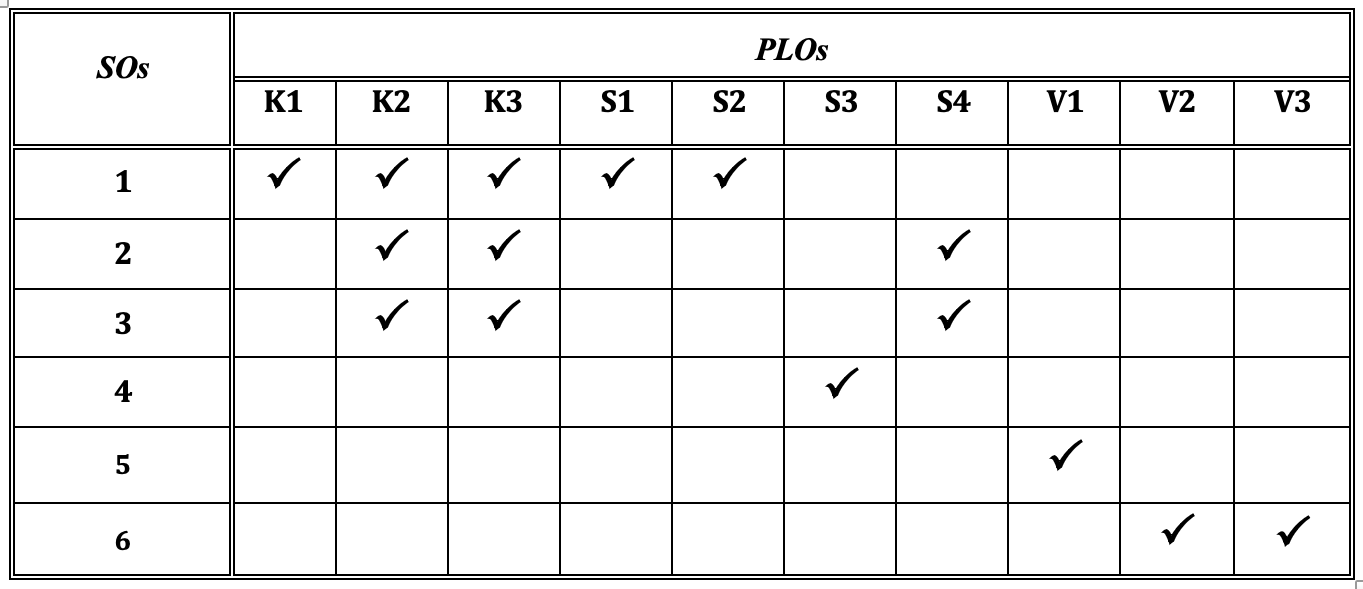Master of Science in Physics
Student Outcomes (SOs) defined by ABET:- An ability to identify, formulate, and solve broadly defined technical or scientific problems by applying knowledge of mathematics and science and/or technical topics to areas relevant to the discipline.
- An ability to formulate or design a system, process, procedure or program to meet desired needs.
- An ability to develop and conduct experiments or test hypotheses, analyze and interpret data and use scientific judgment to draw conclusions.
- An ability to communicate effectively with a range of audiences.
- An ability to understand ethical and professional responsibilities and the impact of technical and/or scientific solutions in global, economic, environmental, and societal contexts.
- An ability to function effectively on teams that establish goals, plan tasks, meet deadlines, and analyze risk and uncertainty.
Program Learning Outcomes (PLOs):The PLOs are divided into three levels including knowledge (K), skills (S) and values (V).
K1. Recognize an advanced and specialized structure of knowledge that includes theories, principles and concepts in the areas of physics.
K2. Describe applications of advanced laboratory techniques, numerical techniques and physics development in industry.
K3. Outline methods that lead students to make research and development.
S1. Apply the advanced concepts, principles and theories involved in addressing issues and problems in a range of different contexts.
S2. Evaluate knowledge and use it to provide innovative solutions to contemporary issues and problems in physics.
S3. Communicate in different ways demonstrating an understanding of theoretical knowledge, transferring knowledge and specialized skills, and sharing ideas within a variety of audience.
S4. Choose and use a variety of digital technology, information, communication technology tools, to process, analyze and produce data and information; to support and promote specialized research and projects.
V1. Demonstrate integrity, professional and academic ethics, participation in finding constructive solutions to some societal issues, and a commitment to responsible citizenship.
V2. Self-evaluate of the level of learning and performance, insist on achievement and excellence, and make logical decisions supported by evidence and arguments independently.
V3. Lead teamwork with functional flexibility and effectiveness, and take responsibility for professional development, participating in developing the group's performance, and enhancing the quality of life.
Mapping of SOs with PLOs:
